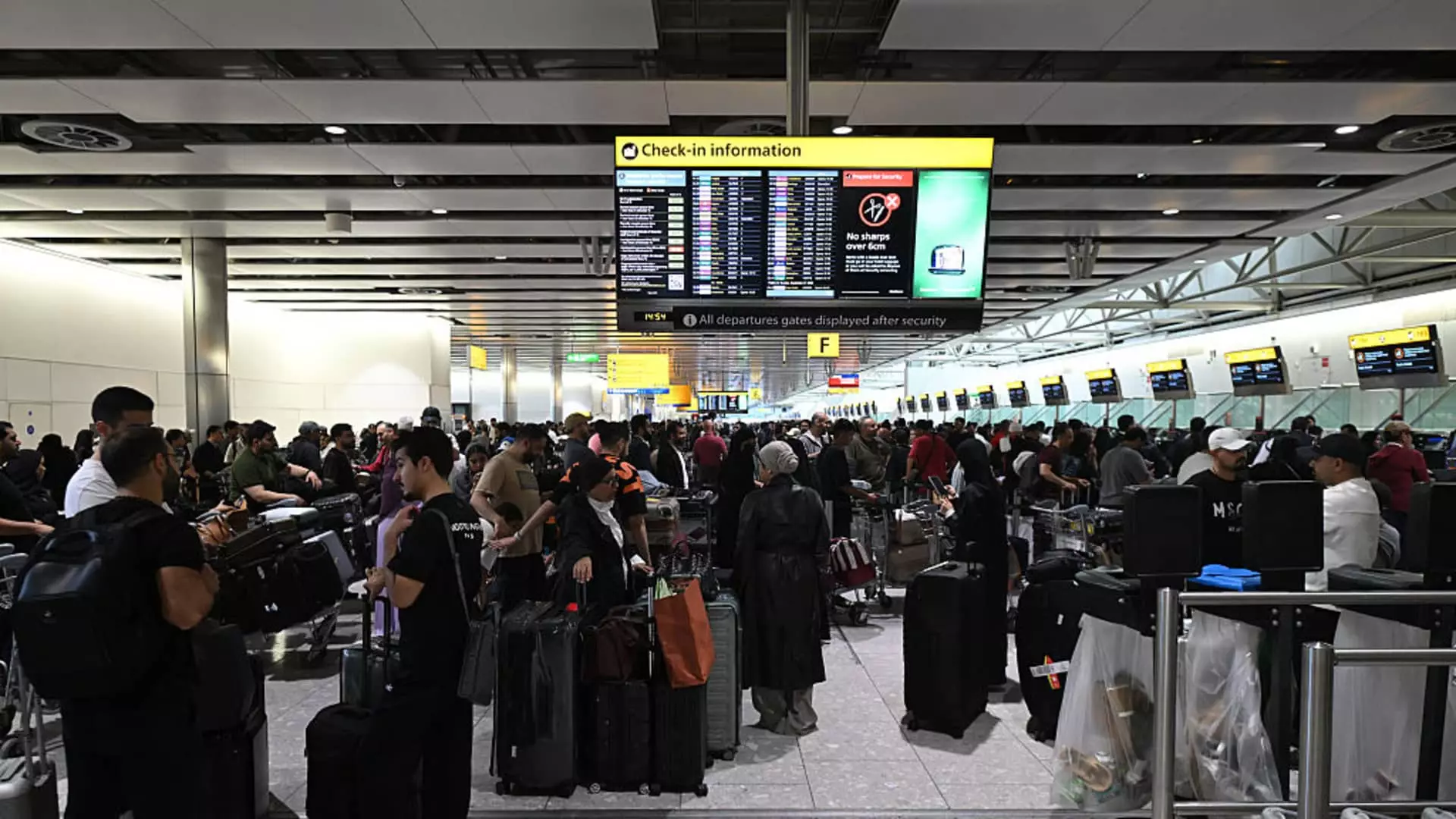In an era where digitally driven efficiencies underpin the very fabric of air travel, the recent cyberattack targeting Collins Aerospace has cast a long shadow over the resilience of our transportation infrastructure. It’s no longer enough to rely on complex check-in systems and automated baggage solutions; these systems have become Achilles’ heels. The attack’s ripple effect across iconic European hubs like Heathrow, Berlin, and Brussels exposes a troubling truth: our reliance on interconnected digital platforms leaves us dangerously exposed to malicious interference. The assumption that technology’s benefits outweigh its risks is a dangerous oversimplification, especially when the consequences include widespread flight cancellations, traveler frustration, and economic repercussions.
This incident underscores how the digital dependencies built into modern airports are not just vulnerabilities but potential vectors for chaos. When a single software failure, orchestrated or accidental, cascades through the system, it can grind the entire operation to a halt. The fact that Heathrow and Brussels, among the most prominent gateways into Europe, suffered significant delays illustrates how fragile these systems are. The broader implication is clear: fostering resilience within our critical infrastructure requires more than just robust hardware; it demands an honest appraisal of how we integrate digital systems into our daily lives.
The Overreliance on Technology Creates an Illusion of Security
The cybersecurity breach at Collins Aerospace isn’t an isolated incident; it is symptomatic of a deeper systemic flaw—that we have overestimated technology’s capacity to safeguard our operations. The phrase “limited impact” in parent company RTX’s statement is arguably misleading. While manual check-in procedures can temporarily substitute for automated systems, they do so at the cost of efficiency and passenger experience. This built-in fallback is a stopgap, not a sustainable solution, revealing that the industry’s confidence in technological superiority is misplaced.
Furthermore, the attack highlights a troubling complacency among stakeholders—airlines, airports, and system providers alike—who have failed to prioritize security as an integral part of operational planning. The assumption that cyber threats predominantly target financial institutions or large corporations neglects how critical transportation systems are becoming targets. The disruption to airline schedules, passenger delays, and operational chaos serve as stark reminders that cyber vulnerabilities directly threaten not only economic stability but also public safety and confidence in the transportation network.
The Need for Proactive, Centered-Liberal Responses to Cyber Threats
As someone who leans toward center-wing liberal perspectives, I argue that this incident offers an opportunity to reevaluate our approach to cybersecurity in critical sectors. It is imperative that governments and private companies collaborate more transparently and proactively. This isn’t about instilling fear but recognizing our collective responsibility to protect the common good. Resilience must be prioritized over reactive patches and quick fixes—an ethos that aligns with sensible liberal ideas about strengthening regulation, funding public infrastructure, and fostering open information sharing.
Enhanced regulation should mandate regular security audits and mandatory system updates that keep pace with evolving threats. Airlines and airports should be required to develop comprehensive contingency plans, including redundant manual procedures that are regularly tested and ingrained into daily operations. The importance of robust backup systems cannot be overstated—these are the safety nets that can prevent chaos whenever digital systems are compromised.
Moreover, fostering a culture of transparency and collaboration among technology providers, airlines, and governmental agencies is essential. When trust and cooperation underpin cyber defenses, the entire ecosystem becomes more resilient. This collective effort not only enhances security but also spreads awareness, encouraging continuous improvement rather than complacency.
A Call for Smarter Investment and Policy Reform
Addressing such vulnerabilities requires more than reassure statements and piecemeal improvements; it calls for strategic investment and bold policy reforms. Governments must see cybersecurity as a critical component of national infrastructure—akin to emergency services or transportation safety standards. Increased funding for research and development in cybersecurity tailored specifically for the aviation sector should be a priority.
Furthermore, policymakers should advocate for international standards that promote interoperability and shared best practices. Cyber threats do not respect borders, and neither should defenses. An integrated, globally coordinated approach ensures that weaknesses in one region do not serve as entry points for widespread disruption.
There is also a moral obligation to upgrade our technological standards. Large corporations like Collins Aerospace and their parent companies have a social responsibility to anticipate and prevent attacks that threaten millions of travelers daily. Rushing to deploy new systems without adequate security measures is shortsighted and potentially catastrophic.
The ongoing disruption at major European airports reveals uncomfortable truths about our digital dependency, complacency, and the urgent need for a strategic overhaul of cybersecurity practices in aviation. We must recognize that technology alone cannot guarantee safety; proactive, well-funded, and cooperative approaches rooted in liberal ideals of shared responsibility and collective security are paramount. Only then can we hope to protect our critical infrastructure amid the rising tide of cyber threats.


Leave a Reply